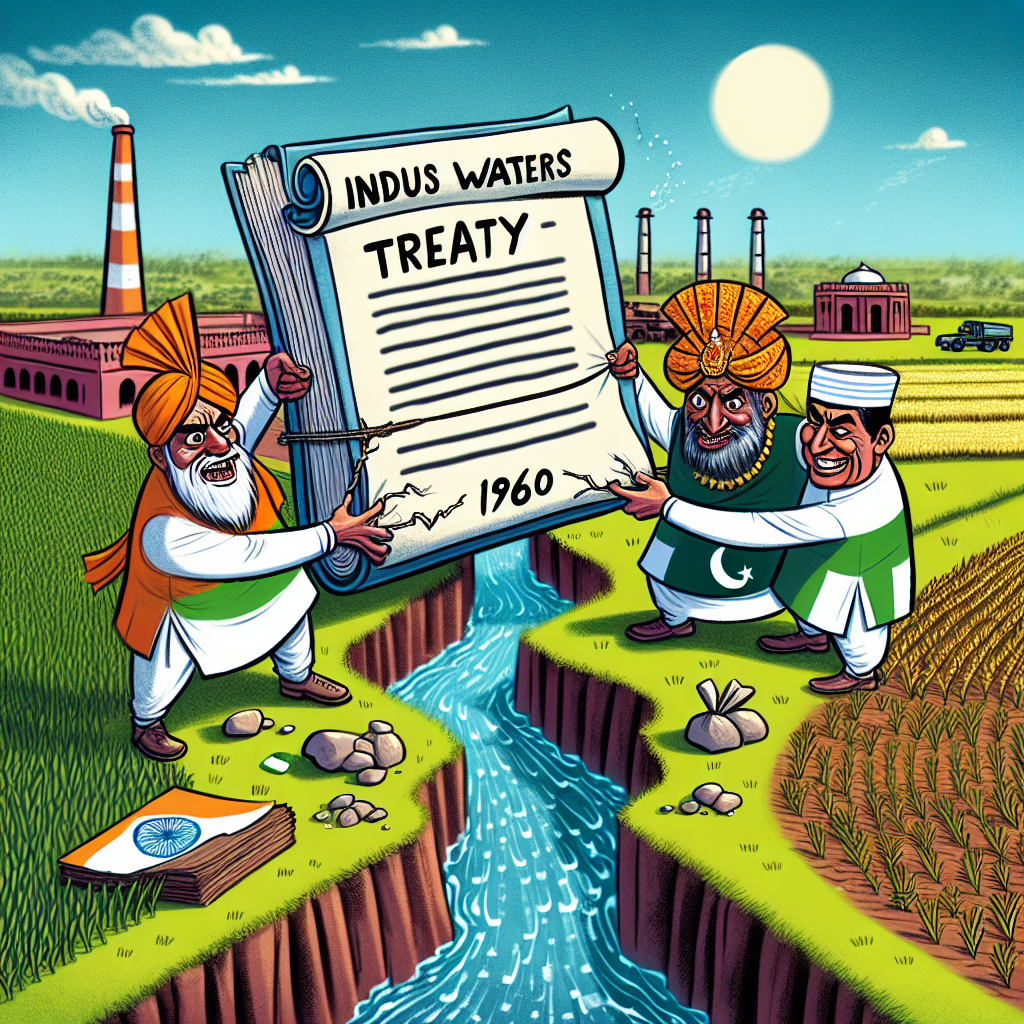India Attempts to Circumvent the Indus Waters Treaty: A Troubling Development in an Already Fragile Relationship

Well now, this whole situation with the Indus Waters Treaty and India’s alleged attempts to circumvent it just leaves me shaking my head. It’s not like this is some brand-new dispute out of the blue — the treaty has been a sort of cornerstone for water-sharing between India and Pakistan since 1960, crafted at a time when folks still trusted agreements and diplomacy more than power plays and one-upmanship. To see fresh allegations that India might be trying to go around the treaty makes me feel like history is repeating itself, except with a bit more modern-day brinkmanship and less patience on all sides.
For those not steeped in South Asian water politics, the Indus Waters Treaty (IWT) is a really significant piece of international diplomacy. It governs the management and distribution of the Indus river system, which flows through both countries and is absolutely vital to their agricultural and drinking water needs. This treaty was supposed to be foolproof — a rare success story during a period when India and Pakistan were bitter adversaries. And yet, time and again, tensions flare up, reminding us how fragile such arrangements can be when trust dissolves.
Now, the recent statement from Khawaja Asif accusing India of attempting to circumvent this treaty adds fuel to an already smoldering fire. While the details remain somewhat murky, the implications are clear: any violation or even perceived subversion of the treaty could have serious consequences for regional stability, livelihoods, and diplomatic relations. It’s a loaded claim from a seasoned politician, and I'm inclined to think these accusations are not tossed around lightly.
I remember my own days trying to make sense of international agreements—back before the Internet, mind you, when it was all about newspapers, radio, and the occasional in-depth documentary. Treaties are supposed to be binding promises, not suggestions or hopscotch rules that one side can pick and choose from depending on its convenience. When one party begins to play fast and loose with such agreements, it undermines the trust needed to keep peace in an already volatile region.
The Indus Waters Treaty isn’t just some dusty old document; it’s the backbone supporting millions of lives dependent on the rivers that flow from the Himalayas to the plains and deserts below. Pakistan, being downstream, naturally fears that any unilateral action upstream could imperil its water security. Conversely, India might argue it’s exercising rights permitted under the treaty or pursuing legitimate development projects. But whether perception or reality, the very idea of circumventing the treaty is a slippery slope.
What really stokes my cranky old-man fire is the larger pattern here — not just isolated incidents but a steady chipping away at frameworks that have, for decades, prevented outright conflict. The geopolitical landscape between India and Pakistan is complex, fraught with history, emotion, and geopolitical ambitions. Water, being a life-sustaining yet scarce resource in this region, is an especially sensitive subject. Any signs of maneuvering to bend or break agreed-upon rules risk cascading tensions beyond control.
In a world already burdened with climate change, population growth, and increasing resource scarcity, water disputes are the last thing the region needs. Dams, canals, and diversion projects, if done without full transparency and mutual consent, threaten not only environmental sustainability but also human lives. Crops fail, economies suffer, and the vulnerable bear the brunt. This, in turn, leads to political instability and hardens nationalistic sentiments, closing the door to dialogue and cooperation.
Now, some might argue that India has the sovereign right to develop infrastructure within its borders for its people's needs. And that’s fair enough — every nation has to look out for its citizens. But the key word there is "within the bounds of agreements made." The Indus Waters Treaty was not an arbitrary piece of paper; it was painstakingly negotiated to prevent conflict and assure equitable sharing. Circumventing it is like trying to drive through a stop sign just because you’re in a hurry — quick, thoughtless, and dangerous.
Having said that, it’s also essential to maintain a clear-headed perspective. Allegations and counter-allegations are as old as the hills in this context. Both sides have been known to present narratives that suit their political aims, sometimes with scant evidence or at least with considerable spin. So, while Khawaja Asif's statement is serious and demands attention, the international community and regional actors should encourage transparency and calm, not rush into estrangement or retaliatory actions. Sustainable peace depends on diplomacy, fact-finding, and fair negotiations — finger-pointing and heated rhetoric only lengthen the journey to resolution.
It’s a bit ironic that this treaty, which survived wars, political upheavals, and decades of bitter rivalry, now faces challenges not from outright conflict but from more subtle, behind-the-scenes maneuvers. It reminds me of how fragile peace sometimes is — not always threatened by open conflict but by the slow erosion of rules and trust.
So, where does that leave us? I suppose it’s a call to all involved — and to those watching from afar — to uphold the rule of law, honor longstanding agreements, and prioritize the common good over narrow interests. Water is a lifeline, and sharing it fairly should never become a tool for political gamesmanship.
In my day, we talked about honor and keeping one’s word. International treaties were a serious business, expected to hold fast even when it was inconvenient. It might seem old-fashioned now, but without that sense of integrity, we’re just spinning our wheels in dangerous mud.
Here’s hoping cooler heads prevail, and the Indus Waters Treaty remains a beacon of cooperation rather than a casualty of mistrust.

